Answer the question
In order to leave comments, you need to log in
GitHub: popular repositories?
How are popular repositories defined in "Trending Repos" and "Interesting Repositories" on github?
Obviously not by subscribers and commits. Below is a list of reasons why I can't understand the
Trending Repos algorithm - generally a mystery:
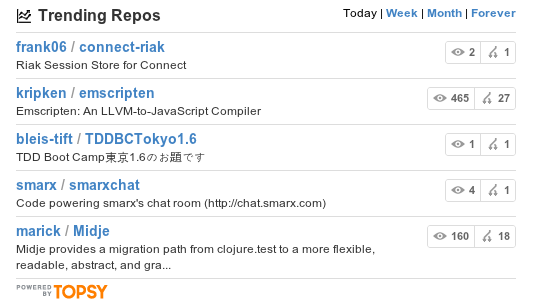
At the same time, Interesting Repositories are less surprising, but still not without flaws. Along with powerful repositories, there are frankly weak ones:

And sometimes it’s completely absurd when an unpopular fork, followed by 4 people, has more weight than the original repository , followed by 743 people.

At the same time, data from the Graphs / Traffic chart (Page Views over last 90 days) is clearly not used, because among the repositories that are in "Interesting Repositories" there are less visited repositories than repositories that are not in "Interesting Repositories".
For example, the repositories that are in "Interesting Repositories" - postgres / postgres - have 1069 visits in 90 days , russel / groovy - 748 visits in 90 days .
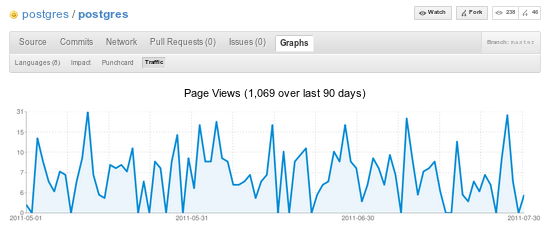
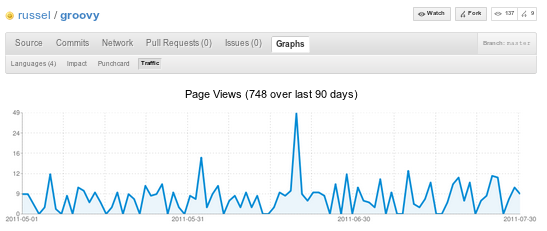
On the other hand, the repositories that are not in "Interesting Repositories" - kohana / kohana - have 12083 visits in 90 days , and theshock / libcanvas - 12,405 visits in 90 days .
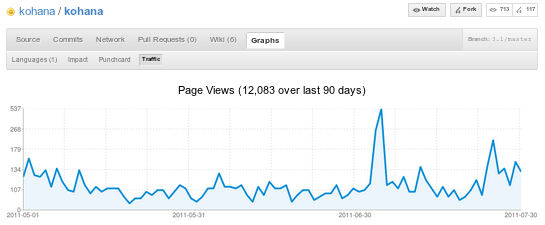
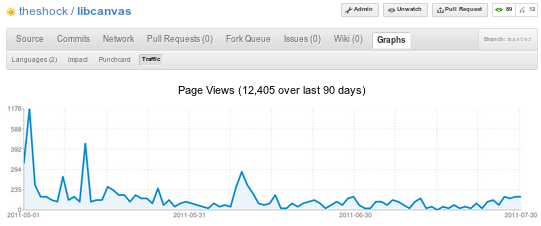
And, if theshock / libcanvas has much lower other objective indicators, then kohana / kohana is ahead of many other repositories that are in "Interesting" in many numbers - > 700 observers, > 100 forks, > 12k visits in 3 months.
And the zendframework / zf2 repository generally contains huge indicators that are more than most other repositories: 1200 subscribers, 400 forks, 30,000 visits in 3 months.
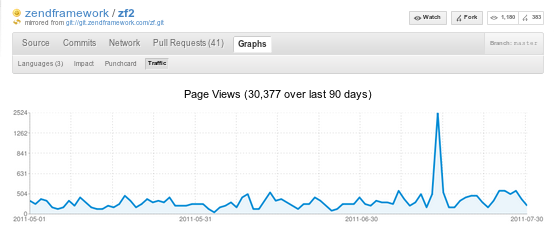
Interestingly, the list is stable, i.e. repositories came to the top not by chance. So what is the algorithm for exiting a repository in "Interesting"?
Answer the question
In order to leave comments, you need to log in
The question is interesting. Sent a description of the problem to @mojombo; Depending on the informativeness, I will post the answer here either as a comment or as a separate post.
I also sent a Github request to put the ranking algorithm in open source; if they agree, it will be possible not only to find out what causes such jambs, but also to help improve the program.
Didn't find what you were looking for?
Ask your questionAsk a Question
731 491 924 answers to any question